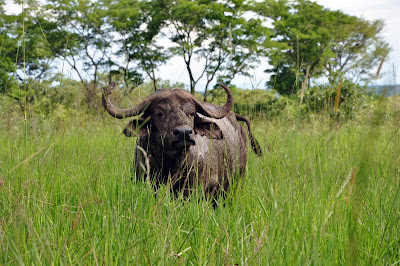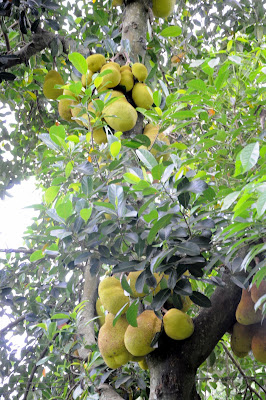- Went to a Full Moon (dance/rave) party at an outdoor paintball yard
- Happily and pleasantly watched the sun come up in an infamous bar universally known for its working girls
- Helped a five year old search for an asthma inhaler at 7am
- Baked cookies
- Petted a chicken
- Was pleasantly surprised to find I like Tanzanian moonshine
- Held an entire conversation that consisted of saying "egh!" in different tones of voice
- Gatecrashed a birthday party where I met the President (Museveni)'s daughter
- Went to my first Ugandan wedding
- Dressed up in a traditional suka
- Was run off the road by Ban Ki Moon (the UN Secretary General)'s massive security convoy
Monday, May 31, 2010
The weekend
Thursday, May 27, 2010
Jinja



Some pictures of Jinja town itself...





Monday, May 24, 2010
Food

Friday, May 21, 2010
A Day in the Life
Tuesday, May 18, 2010
Mukasa flowers







Monday, May 17, 2010
Home


Friday, May 14, 2010
Human rights defenders continue to pay with their lives in Mexico, warn UN experts

Spanish version, see below
Media Statement
12 May 2010
Human rights defenders continue to pay with their lives in Mexico, warn UN experts
GENEVA – A group of UN independent experts* warned about the deteriorating situation for human rights defenders in Mexico, strongly condemning the recent killing of human rights defender Ms. Beatriz Alberta (Bety) Cariño Trujillo and the international observer Mr. Tyri Antero Jaakkola in Oaxaca, south east Mexico.
“Defenders continue to face significant threats to their lives in Mexico as a result of their work,” said Margaret Sekaggya, UN Special Rapporteur on the situation of human rights defenders. “We are deeply concerned about the deteriorating situation for human rights defenders in the country, including women and human rights defenders working on issues related to indigenous communities.”
On 27 April 2010, Bety Cariño and Tyri Antero Jaakkola were part of a mission to monitor human rights in Oaxaca when they were ambushed by paramilitaries and killed. Several other human rights defenders and journalists suffered injuries. Four other members of the mission, including two journalists of the magazine Contralínea, spent two days in a forest following the attack, before being rescued by the police on 30 April.
“The situation in Mexico is extremely complex and no-one could doubt the gravity of the challenges confronting the Government in its fight against the drug cartels” added Philip Alston, Special Rapporteur on extrajudicial, summary or arbitrary executions. “But there is no justification for failing to take strong steps when human rights defenders, journalists and others are killed. Human rights must not be permitted to be a casualty in the fight against drugs and crime.”
"The increase of armed clashes and violence in the community of San Juan Copala over the past few months is affecting not only the armed groups involved but also the population of the district, most of them women and children belonging to the Triqui indigenous community,” stated with concern the UN Special Rapporteur on the human rights and fundamental freedoms of indigenous people, James Anaya.
On his part, UN Special Rapporteur on freedom of expression and opinion, Frank La Rue, urged the Mexican authorities to protect the right to life and guarantee the right to freedom of opinion and expression, as stated in articles 6 and 19 of the International Covenant on Civil and Political Rights. “The role of journalists is crucial in reinforcing human rights as well as the enjoyment of all rights and freedoms of all persons.”
The group of UN experts called on the Mexican Government “to take all necessary steps to protect the right to life and security of human rights defenders in the country against any violence and any other arbitrary action which may be a consequence of the legitimate exercise of their activities.”
“We urge the authorities to initiate a prompt and impartial inquiry into the mentioned events so that perpetrators are identified, brought to justice and appropriate penalties are imposed”, they said. “The international community will closely follow the response of the Mexican Government regarding such events.”
Ms. Sekaggya had met with Bety Cariño in February 2010, at the Fifth Dublin Platform, a meeting of over 100 human rights defenders from around the world. The UN independent expert praised the defender for her tireless work campaigning on indigenous, environmental and women's rights. Bety Cariño was Director of the Centro de Apoyo Comunitario Trabajando Unidos CACTUS (Centre for Community Support Working Together).
(*): Margaret Sekaggya, Special Rapporteur on the situation of human rights defenders; Philip Alston, Special Rapporteur on summary, extrajudicial or arbitrary executions; James Anaya, Special Rapporteur on the human rights and fundamental freedoms of indigenous people; and Frank la Rue, Special Rapporteur on the promotion and protection of the rights to freedom of opinion and expression.
ENDS
Check the International Covenant on Civil and Political Rights: http://www2.ohchr.org/english/
Visit the Special Rapporteurs’ websites:
Situation of human rights defenders: http://www2.ohchr.org/english/
Summary, extrajudicial or arbitrary executions: http://www2.ohchr.org/english/
Situation of human rights and fundamental freedoms of indigenous people: http://www2.ohchr.org/english/
Promotion and protection of the rights to freedom of opinion and expression: http://www2.ohchr.org/english/
OHCHR Country Page – Mexico: http://www.ohchr.org/EN/
For more information and media requests, please contact Dolores Infante (Tel.:+ 41 22 917 9730 / e-mail: dinfante@ohchr.org)
______________________________
Declaración a la Prensa
12 de mayo de 2010
Defensores de los derechos humanos continúan pagando con sus vidas en México, advierten expertos de la ONU
GINEBRA – Un grupo de expertos en Derechos Humanos de las Naciones Unidas* advirtió sobre el deterioro de la situación para los defensores de los derechos humanos en México y condenó firmemente los recientes asesinatos de la defensora de los derechos humanos Beatriz Alberta (Bety) Cariño Trujillo y del observador internacional Tyri Antero Jaakkola, en Oaxaca, sureste de México.
“Los defensores continúan haciendo frente a graves amenazas contra sus vidas en México como consecuencia de su trabajo”, dijo Margaret Sekaggya, Relatora Especial sobre la situación de los defensores de los derechos humanos. “Estamos profundamente preocupados por el deterioro de la situación de los defensores de los derechos humanos en México, incluidas las mujeres y los defensores que trabajan en temas relacionados con las comunidades indígenas”.
El 27 de abril de 2010, Bety Cariño y Tyri Antero Jaakkola formaban parte de una misión de observación de los derechos humanos en Oaxaca cuando sufrieron una emboscada por parte de los paramilitares y fueron asesinados. Otros defensores de los derechos humanos y de periodistas sufrieron heridas. Cuatro miembros de la misión, incluidos dos periodistas de la revista “Contralínea”, pasaron dos días en la selva tras el ataque antes de ser rescatados por la policía el 30 de abril.
“La situación en México es extremadamente compleja y nadie puede poner en duda la gravedad de los desafíos a los que se enfrenta el Gobierno en su lucha contra los cárteles de las drogas”, añadió Philip Alston, Relator Especial sobre las ejecuciones sumarias, extrajudiciales o arbitrarias. “Pero no hay justificación para no tomar las medidas necesarias cuando defensores de los derechos humanos, periodistas u otros son asesinados. No se debe permitir que los derechos humanos sean víctimas de la lucha contra las drogas y el crimen.”
“El incremento de los enfrentamientos armados y la violencia en la comunidad de San Juan Copala durante los últimos meses está afectando no sólo a los grupos armados involucrados, sino también a la población civil del municipio, en su mayoría pertenecientes a la comunidad indígena triqui”, señaló con preocupación el Relator Especial sobre libertades y derechos fundamentales de los pueblos indígenas, James Anaya.
Por su parte, el Relator Especial de la ONU sobre la promoción y la protección del derecho a la libertad de opinión y de expresión, Frank La Rue, exhortó a las autoridades mexicanas a proteger el derecho a la vida y a garantizar libertad de opinión y de expresión, tal y como se contempla en los artículos 6 y 19 del Pacto Internacional de Derechos Civiles y Políticos. “El papel de los periodistas es crucial tanto en el fortalecimiento de los derechos humanos como en el disfrute de todos los derechos por parte de todas las personas”.
El grupo de Expertos de la ONU hizo un llamamiento al Gobierno mexicano “a tomar las medidas que sean necesarias para proteger el derecho a la vida y la seguridad de los defensores de los derechos humanos en el país contra todo tipo de violencia y acción arbitraria que se produzca como consecuencia del ejercicio legítimo de sus actividades.”
“Exhortamos a las autoridades a iniciar una investigación pronta e imparcial sobre los hechos mencionados con el fin de que los culpables sean identificados, puestos a disposición judicial y se impongan penas adecuadas. La comunidad internacional seguirá de cerca la respuesta del Gobierno mexicano en relación a estos hechos.”
Margaret Sekaggya había conocido a Bety Cariño en Febrero de 2010 durante la Quinta Plataforma de Dublín, una reunión de más de 100 defensores de los derechos humanos de todo el mundo. La Sra. Sekaggya elogió a la defensora por su trabajo incansable en favor de los derechos de los indígenas, las mujeres y el medio ambiente. Bety Cariño era Directora del Centro de Apoyo Comunitario Trabajando Unidos (CACTUS).
(*): Margaret Sekaggya, Relatora Especial sobre la situación de los defensores de los derechos humanos; Philip Alston, Relator Especial sobre las ejecuciones sumarias, extrajudiciales o arbitrarias; James Anaya, Relator Especial sobre libertades y derechos fundamentales de los pueblos indígenas; y Frank la Rue, Relator Especial sobre la promoción y la protección del derecho a la libertad de opinión y de expresión.
ENDS
Pacto Internacional de Derechos Civiles y Políticos: http://www2.ohchr.org/spanish/
Visite las páginas web de los Relatores Especiales:
Situación de los defensores de los derechos humanos: http://www2.ohchr.org/english/
Ejecuciones extrajudiciales, sumarias o arbitrarias: http://www2.ohchr.org/english/
Libertades y derechos fundamentales de los pueblos indígenas: http://www2.ohchr.org/english/
Promoción y protección del derecho a la libertad de opinión y de expresión: http://www2.ohchr.org/english/
ACNUDH, página por país – México: http://www.ohchr.org/SP/
Para más información y solicitudes de prensa, favor contactar a Dolores Infante (Tel.:+ 41 22 917 9730 / e-mail: dinfante@ohchr.org)
Monday, May 10, 2010
Coffee time photo break


Thursday, May 6, 2010
Faith















